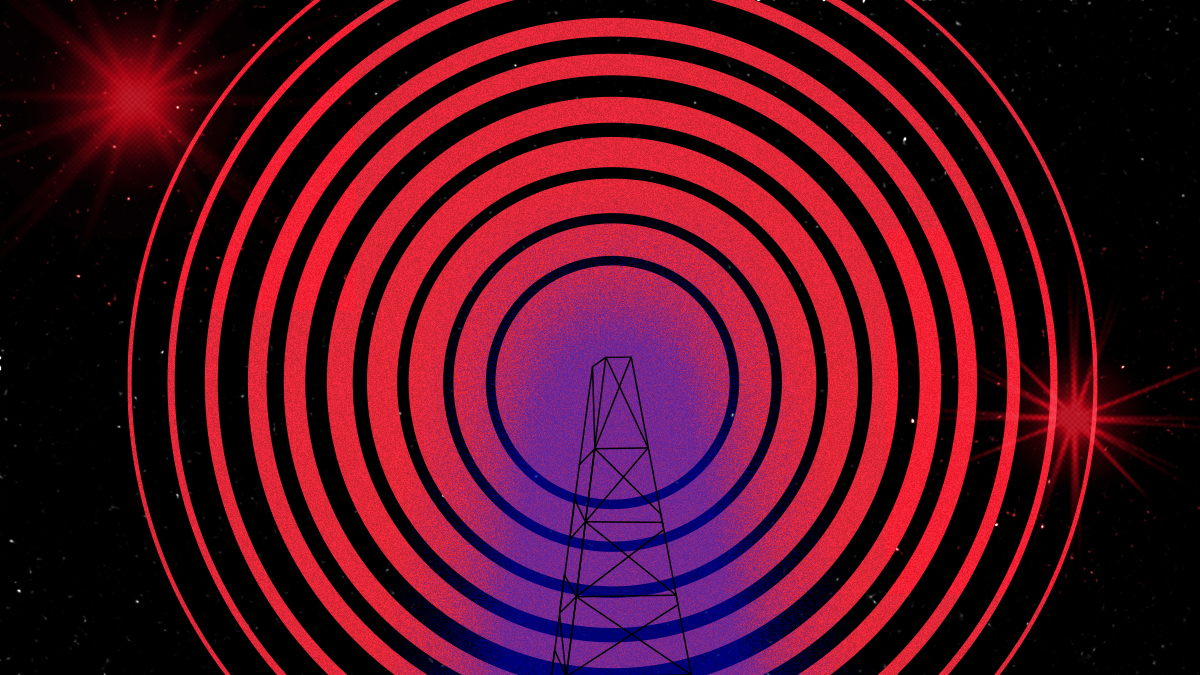Real UFO History: Einstein, Tesla, Edison, and Marconi on Radio Signals from Aliens
The Vast of Night features an alien radio signal mystery, not too dissimilar to the alien signal mysteries the famous inventors of the radio faced.

This article is presented by: 
A switchboard operator and a DJ in a small town in the 1950s discover a strange, potentially alien, audio signal that leads them on a wild investigation to find the origins of the signal. This is the plot for The Vast of Night, which is now streaming on Amazon Prime Video. Could our first contact with aliens be as simple as a radio signal from aliens saying, “Hi?” The renowned scientists who invented the radio believed they received precisely that early in their experiments. Today, scientists spend millions to listen in on radio signals from space hoping to hear that first transmission from an extraterrestrial civilization.
A complicated debate rages as to who first invented the radio. On the U.S. side is Nikola Tesla, the famous inventor who is the namesake for Elon Musk’s Tesla electric vehicle company. Representing the Europeans is Italian inventor Guglielmo Marconi. They both were pioneers in developing radio communication. For our purposes, it doesn’t matter who you feel should get credit for inventing radio communication, because both of them claimed to have possibly received radio signals from aliens.
The first was Tesla. In an article titled “Talking with the Planets” for Collier’s Weekly in 1901, Tesla claimed he received strange signals while experimenting with radio at his lab in Colorado Springs in 1899.
“Even now, at times, I can vividly recall the incident, and see my apparatus as though it were actually before me,” wrote Tesla. “My first observations positively terrified me, as there was present in them something mysterious, not to say supernatural, and I was alone in my laboratory at night; but at that time the idea of these disturbances being intelligently controlled signals did not yet present itself to me.”
“It was some time afterward when the thought flashed upon my mind that the disturbances I had observed might be due to an intelligent control,” Tesla continued. “Although I could not decipher their meaning, it was impossible for me to think of them as having been entirely accidental. The feeling is constantly growing on me that I had been the first to hear the greeting of one planet to another.”
The article goes on to argue that despite whether the signal was from aliens or not (Tesla suspected it would likely be Martians) the technology he was working on would have the potential to be used to communicate distances as vast as those between the panels in our solar system. This may have been the first time anyone used the “I am not saying it’s aliens, but…” line. Which was pretty bold at the time, especially given that earlier in the article, he noted skeptics questioned whether two-way radio communication was possible.
Marconi shared his alien signal encounter in an article in 1920.
“I have encountered during my experiments with wireless telegraphy [a] most amazing phenomenon,” wrote Marconi. “Most striking of all is receipt by me personally of signals which I believe originated in the space beyond our planet. I believe it is entirely possible that these signals may have been sent by the inhabitants of other planets to the inhabitants of earth.”
Marconi seemed more certain that his encounter was an alien communication.
“If there are any human beings on Mars I would not be surprised if they should find a means of communication with this planet,” Marconi posited. “Linking of the science of astronomy with that of electricity may bring about almost anything.”
Another famous inventor of the time, Thomas Edison, agreed with Marconi’s speculation.
“Although I am not an expert in wireless telegraphy, I can plainly see that the mysterious wireless interruptions experience by Mr. Marconi’s operators may be good grounds for the theory that inhabitants of other planets are trying to signal us,” Edison argued. “Mr. Marconi is quite right in stating that this is entirely within the realm of possible.”
Edison didn’t stop there. He went on to argue that there must be other intelligent life out there.
“If we are to accept the theory of Mr. Marconi that these signals are being sent out by inhabitants of other planets, we must as once accept with it the theory of their advanced development,” wrote Edison. “Either they are our intellectual equal or our superiors. It would be stupid of us to assume that we have the corner on all the intelligence in the universe.”
Tesla also shared his opinion on Marconi’s claim.
“Marconi’s idea of communicating with the other planets is the greatest and most fascinating problem confronting the human imagination today,” stated Tesla. “To insure (sic) success a body of competent scientists should be organized to study all possible plans and put into excitation the best. The matter should be directed probably by astronomers with sufficient backing from men with money and imagination. Supposing that there are intelligent human beings on Mars, success is easily within the range of possibility.”
He also shared the fact that he had a similar experience.
“One day my ear caught what seemed to be regular signals,” said Tesla. “I knew they could not have been produced upon Earth. The possibility that they came from Mars occurred to me, but the pressure of business affairs caused me to drop the experiment.”
These were not the only famous scientists to chime on on Marconi’s experience. Albert Einstein himself was asked for his thoughts as well.
“There is every reason to believe that Mars and other planets are inhabited,” said Einstein. “Why should the earth be the only planet supporting human life? It is not singular in any other respect. But if intelligent creatures do exist, as we may assume they do elsewhere in the universe, I should not expect them to try to communicate with the earth by wireless [radio]. Light rays, the direction of which can be controlled much more easily, would more probably be the first method attempted.”
Marconi’s speculation that he had sought alien signals had quite an effect. In 1924, the Secretary of the Navy felt that the close approach of Mars would be an opportune time to listen in for signals from Martians. He sent out a telegram asking radio stations to listen in.
Although Einstein suggested looking for light signals (lasers) rather than listening to radio waves to search for alien signals, radio waves became the predominant method used.
Will aliens send us a signal on the radio? Some believe perhaps they already have. But we have yet to have received a confirmed communication. As for the characters in The Vast of Night, if they do believe they caught an alien signal, they’re in good company. Some of the biggest brains in the business have thought it was possible.
The Vast of Night is now streaming on Amazon Prime.